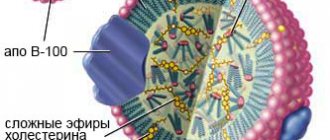What is the essence of rapid screening?
For World Heart Day and World Thrombosis Day, SANTO launched the “Listen to your heart” project, offering everyone a free blood test for cholesterol, blood pressure measurements and consultations with cardiologists. On October 13 and 14, 2018, two screening zones operated in one of the shopping centers in Almaty and Shymkent.
To determine the cholesterol level, the doctor only needs one drop of the patient’s blood. Qualified cardiologists and health care providers measure cholesterol levels using rapid analyzers. The device produces results within four seconds, the same amount of time it takes to determine the level of sugar and triglycerides (fats) in the blood.
Photo by Roman Lukyanchikov for Informburo.kz
At the second stage of screening, doctors measured the patients’ blood pressure and gave recommendations for further diagnosis and lifestyle, depending on the results of the screening.
Why is high cholesterol dangerous?
Cholesterol is an organic substance that covers the membrane of each cell with a special protective layer. Cholesterol has many important functions, and the body produces most of it itself, and receives the missing part from food.
This substance is insoluble in water, therefore it is distributed as part of complex protein compounds - lipoproteins. They vary in high, low and very low density. It is the last two categories that are called bad cholesterol. Categories of lipoproteins accumulate on the walls of blood vessels in the form of plaques, interfering with the flow of blood and oxygen to the internal organs.
Photo by Roman Lukyanchikov for Informburo.kz
As a result, vascular atherosclerosis develops. It occurs even in young people and can lead to myocardial infarction and other dangerous cardiovascular diseases. For example, to a stroke, which also occurs due to blockage of blood vessels, but only in the brain. Excess cholesterol enters the body with excess fat contained in food.
INCREASED CHOLESTEROL IS A DIRECT THREAT OF HEART ATTACK, STROKE AND EVEN DEATH
13.Dec.2019
Cholesterol is the main building material in the body. It is used to build cells, hormones, vitamin D, and nervous tissue. Two-thirds of cholesterol is produced directly in the body (mostly in the liver), and another third (300–400 mg) comes from cholesterol-containing foods. A significant amount of cholesterol is formed due to the reabsorption of bile acids (750–1250 mg).
When the level of cholesterol in the blood increases, the excess is deposited in the wall of blood vessels and leads to narrowing. If blood vessels are completely blocked or blood clots (thrombi) form on the surface of plaques, a heart attack, stroke, or sudden death can occur. It has been established that an increase in blood cholesterol levels plays a major role in the processes of the occurrence and development of plaques.
Cholesterol is a water-insoluble substance that is transported in the blood in the form of special transport particles - lipoproteins. Low-density lipoproteins contain a lot of cholesterol - this is the “bad” cholesterol. The more low-density lipoproteins there are in the blood, the greater the chance of suffering a heart attack or stroke. To ensure balance in the body, nature also created “good” cholesterol - high-density lipoproteins, which ensure the normal outflow of cholesterol from the blood back to the liver, where cholesterol is “burned”. Accordingly, the more “good” cholesterol a person has in his blood, the better. It is very important to know the relationship between total cholesterol and good cholesterol. It is this dynamic equilibrium that determines the rate of formation or destruction of atherosclerotic plaque.
Citizens who have had heart attacks, strokes, operations on the heart or blood vessels, as well as patients diagnosed with arterial hypertension or angina pectoris should regularly monitor cholesterol levels. The above diseases, along with smoking, excess body weight or unfavorable heredity for heart disease, are additional risk factors and themselves on their own can lead to sudden death, heart attack or stroke.
In the case where diagnostic examinations have indicated the presence of atherosclerotic plaques in the vessels, constant monitoring of cholesterol levels makes it possible to influence the main cause of the disease, namely, to “deprive” the plaque of building material, thereby creating the preconditions for the “resorption” of the latter. It is also important to take into account the fact that a systematic decrease in cholesterol in the blood leads to a qualitative change in the condition of blood vessels, which helps to more effectively fight hypertension.
EFFECT OF THERAPY
In each individual case, treatment is prescribed exclusively by the doctor. Reducing cholesterol with medications is a long-term process that usually lasts for life. When the drug is intentionally or forcedly discontinued, cholesterol returns to its original level. Accordingly, when such a drug is discontinued, the risk of fatal complications (heart attack, stroke) increases again. Cholesterol-lowering therapy does not replace diet: proper nutrition and taking the drug helps to achieve an additional reduction in “bad” cholesterol in the blood and create the biochemical prerequisites for stopping or reversing the development of atherosclerosis in the vessels of the heart and other vital organs. Cholesterol-lowering medications are usually well tolerated by patients: the incidence of side effects does not exceed 1%. If unusual symptoms appear (muscle weakness, pain in the right side), you should inform your doctor about your health status. The first favorable changes inside the blood vessels begin within one month after the start of drug cholesterol control, and the symptoms of angina pectoris may improve after 6 months. The risk of heart attack or stroke may statistically decrease after at least one year of regularly taking cholesterol-lowering pills.
Alena Dyudina, general practitioner, Nyagan City Clinic
What you need to know about high arterial (blood) pressure?
Blood pressure occurs when the heart pumps blood and exerts pressure on the arteries.
According to WHO, normal blood pressure in adults is determined to be 120 mmHg at the time the heart contracts and 80 mmHg at the time it relaxes. It is considered elevated or high at levels of 140 mm by 90 mm and above.
Photo by Roman Lukyanchikov for Informburo.kz
With high blood pressure - hypertension - it becomes more difficult for the heart to pump blood, which in uncontrolled cases can cause stroke, heart attack, heart failure and other serious ailments. The causes of hypertension are different - from heredity and excess weight to smoking and salt abuse.
The problem with high blood pressure is that a person does not feel it for a long time until it manifests itself in a more severe stage.
Cholesterol, heart attack and myths about cleaning blood vessels. Interview with a cardiologist
Get checked regularly and start taking medications on time. But there are no vitamins for the heart. Only regular, but not excessive cardio exercise, healthy eating and quitting smoking and alcohol will help. The sooner you start working on your cardiovascular health, the better.
One scientific article says that mortality from heart attacks can be reduced by 90%, however, for this it is also necessary to organize the work of emergency services for patients.
What is non-excessive cardio exercise? Should you run every day?
The American College of Cardiology conducted a study that showed that people who run a little bit have the longest life expectancy. The optimal running frequency is two or three times a week. And intense running at a high heart rate does not have a very good effect on life expectancy; for example, the mortality rate of professional runners is practically no different from the mortality rate of people leading a sedentary lifestyle. Therefore, the load should be moderate. The conditional ten thousand steps a day is a kind of norm.
But do athletes live longer?
Of course, if we take an elite athlete and an employee of the Chelyabinsk tractor plant, then everything is obvious. In general, life expectancy depends most strongly on wealth. There are a lot of interesting studies on this matter. One of them is about which sport gives maximum life expectancy. Tennis came first. And only people with high incomes can afford it. If we compare professional athletes with celebrities, we will see that athletes live on average 3–4 years less.
After what alarm bells is it time to run to a cardiologist?
Alarm bells arise in anxious people, and then the anxiety disorder forces the person to visit a cardiologist. The problem arises when there are no alarm bells, when a person does not visit a doctor at all. The main difficulty with cardiovascular diseases is the lack of discomfort with high blood pressure and high cholesterol. Very often the first and only symptom of heart disease is a cardiovascular accident.
Why do people in the West live comfortably to cancer, while in our country people still die from cardiovascular diseases?
The most striking example of increasing life expectancy due to government action is Finland. In it, thanks to the “North Karelia” program, over forty years of educational work, changes in diet, and giving up bad habits, mortality from coronary heart disease decreased by 82% (from 643 to 118 per 100,000 people).
Other countries in Europe and Latin America also conducted similar programs, but they were not so long-lasting. Promoting a healthy lifestyle and education in the field of medicine can significantly extend the lives of people in Russia. Here, many people still think that alcohol “cleanses blood vessels,” “doctors do not recommend abruptly quitting smoking,” and pills are “harmful to the liver.”
What can the government do to reduce mortality from cardiovascular diseases?
It is important to explain what a healthy lifestyle is and offer the right strategies for acquiring eating habits, giving up bad habits, and so on. It is difficult for a doctor to do this in 12 minutes of appointment.
Is it possible to determine at home that blood pressure and cholesterol are not normal?
You yourself cannot detect or feel elevated cholesterol levels, so you cannot do without a blood test. Signs of high blood pressure may include headaches, fatigue, rapid heartbeat, a feeling of shortness of breath, and decreased concentration.
Doctors recommend checking your blood pressure level yourself using an automatic tonometer. If it periodically becomes elevated, it is better to consult a specialist. Also, for heart pain and high blood pressure, doctors recommend keeping nitroglycerin-based medicine in your home medicine cabinet.
Photo by Roman Lukyanchikov for Informburo.kz
What to do
To lower your cholesterol levels you can:
- Eat more foods rich in low-density lipoproteins to increase good cholesterol in the blood. These foods include nuts, seeds, avocados, sea fish and other foods rich in healthy fats.
- Increase the amount of fruits, vegetables and fiber in your diet, and eat less fried foods and processed foods.
- Exercise at least half an hour a day. You can walk one or two stops, take the stairs instead of the elevator, or otherwise increase your activity. Even if it is not possible to fully engage in sports.
- Reduce stress levels, quit smoking and drinking alcohol. These measures are needed to reduce the load on the cardiovascular system.
But making lifestyle changes on your own is difficult, so it’s best to do it with the help of your doctor. He will help you choose a diet and exercise and select medications to lower cholesterol. He will also prescribe the necessary tests to make sure that the treatment is working.
Reshetnikova A.A.
Where can I measure my cholesterol and blood pressure?
The “Listen to your heart” project is an annual project of the SANTO company, whose task is to inform Kazakhstanis about cardiovascular diseases and methods of their prevention. The organizers regularly conduct “Pulse of Life” express screenings in different cities of Kazakhstan. You can also consult a physician, cardiologist or general practitioner for advice on CVD issues, and also have your cholesterol checked in a medical laboratory.
“By associating the heart rate with a melody, people will listen more carefully to its sounds. The most important thing is that the heart must beat! The results of the screenings show how important it is to take care of your heart health and take preventive measures in a timely manner,” noted Izhi Urbanec , CEO of SANTO.
Izhi Urbanets, General Director of SANTO / Photo by Roman Lukyanchikov for Informburo.kz
“We care about the health of Kazakhstani patients, so we hold such events every year to help people maintain health and improve their quality of life. People are interested in learning how to take care of their heart. This is important so that Kazakhstanis not only know how to treat diseases, but also know how to prevent them.”










